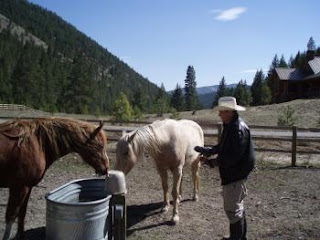I don’t have the words to adequately express what an honor it is to have the opportunity to interview James Lee Burke. In addition to being one of my favorite storytellers, he is a true American hero, a man who has the courage and consideration of his convictions and the eloquence to express ideas that we all would do well to consider. On top of all that, he has a wicked funny sense of humor.
Here’s the interview, and be sure to stop by the FridayReads Facebook page for more on CREOLE BELLE and a chance to win a copy.
All of your books are strongly grounded in history. If you had to recommend just three books about history to a reader, which would they be?
THE YEAR OF DECISION by Bernard DeVoto, BLACK ELK SPEAKS by John Neihardt, and THE HISTORY OF THE CHURCH by Eusibius
Your books are beloved by readers around the world. Do you find that the reaction to your stories is different from readers in different countries?
The books have done very well in France, Italy, Spain, the U.K, the Scandinavian countries, Ireland, Australia, and New Zealand. I have bombed out in Germany, totally and completely, and I have no idea why. I have retaliated by refusing to eat German-made pretzels.
In CREOLE BELLE, you challenge readers, as you have before, to examine the impact that corporations—and their actions—have on the world around us. Why is this an important theme for you?
I think we are living in remarkable times. The era of nationalism that begun in the sixteenth century is coming to an end and, in my opinion, is being replaced by corporate entities that have in effect confiscated national identities. The downside of this is that in 1914 we entered a new form of global struggle, one centered around the acquisition of energy. I believe we are walking in the same sand as the British and the French, and we’ll suffer the same consequences as they.
You’ve had a lot of different jobs over the years…other than writing, which was your favorite?
The best job I had before writing was working on the pipeline. However, the best job I had as a writer and a family man was teaching. The academic world was very good to me.
In an interview about THE GLASS RAINBOW, you said, “There is no happy ending in Louisiana’s story.” Do you still believe this to be the case?
Yes, I’m afraid that Louisiana’s environment will continue to be degraded and its people robbed of their resources. If anyone would like to see our country’s future if it is run by a petro-chemical oligarchy, they should spend a little time in Louisiana and perhaps visit the eight thousand miles of canals that have been cut from saltwater into freshwater marsh.
Along those same lines, in CREOLE BELLE, readers find a great deal of hope, of optimism, as well as challenges to ways of thinking some would tell us are“conventional” in America today. Do you see yourself as a generally optimistic person?
I believe in the essential goodness and resilience of the human family. However, our greatest strength — namely our willingness to rally around the flag in times of duress — is often our greatest weakness. Those who love war are usually those who retroactively revise their own failures and inadequacies by sending others off to fight and die.
Do you listen to music while you write?
I play guitar and mandolin while I write (not all at the same time). You can always tell when I’m playing because doors are slamming all over the house. I don’t know why that happens.
You have created some of the most vivid bad guys (and girls) in the history of fiction.They frighten readers to their very core…do they ever scare you?
They do. Legion Guidry is the probably the worst of the bunch.Wyatt Dixon, is his earlier incarnation, is bad, too. Preacher Jack Collins sometimes causes me night sweats because he reminds me a politician who left a heavy imprint on his country.
What’s the most interesting thing you’ve learned recently?
That being seventy-five beats being dead.
In 2004, you said in an interview that James M.Cain, John Steinbeck, and Jack London are some of the greatest—and most ignored—writers. Are there any others you think don’t get the attention they deserve? Any new authors you’ve discovered recently whom you think show special promise and talent?
I think my cousin Andre Dubus III may be the best writer of prose in the country. His autobiography TOWNIE is a masterpiece. Ron Hansen still remain some of the best longball hitters, too.
You’ve been married for quite a few years now, and Pearl is obviously very much the apple of your eye. What’s the secret to such a happy and long-lasting marriage?
Pearl and I have been married fifty-two years. We have four of the best kids in the world and four of the best grandchildren. I don’t think anyone could have a greater gift than the people I call my family.


